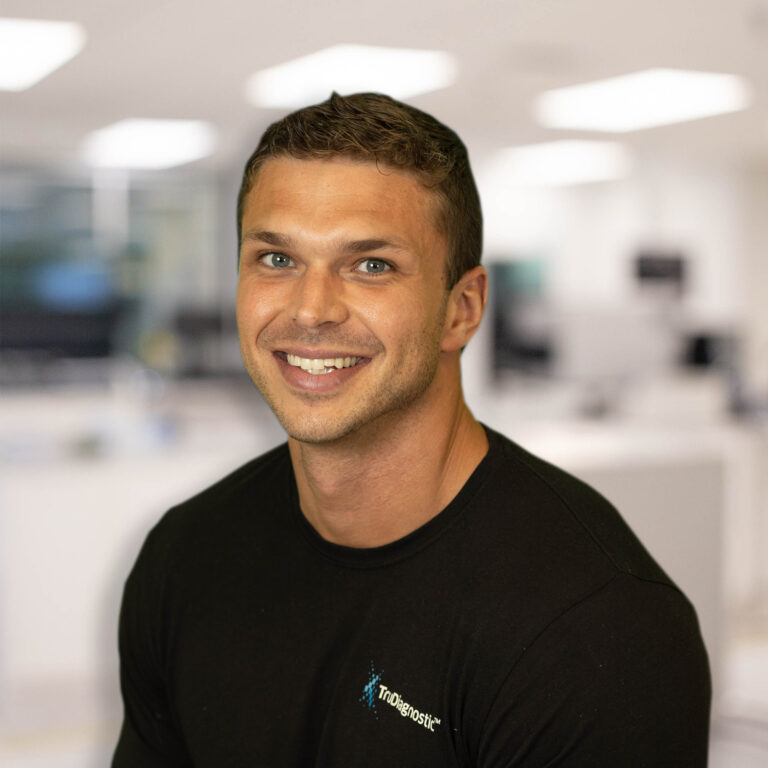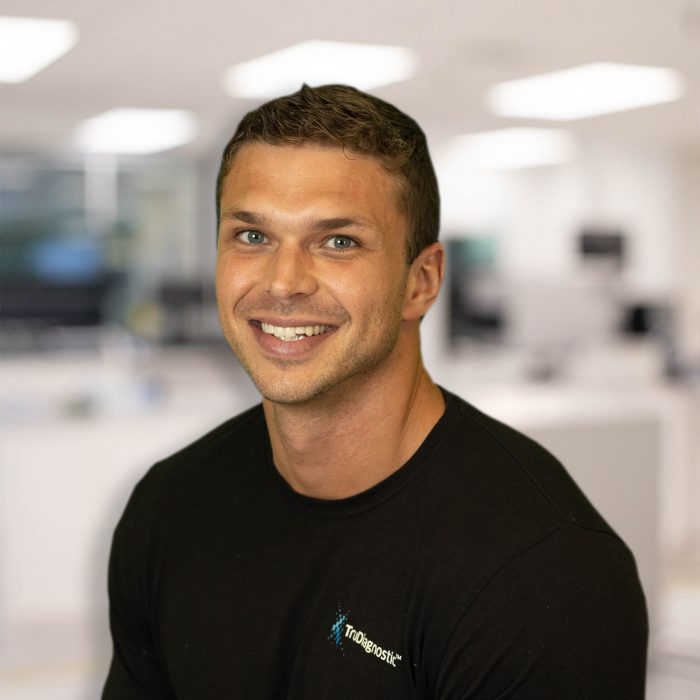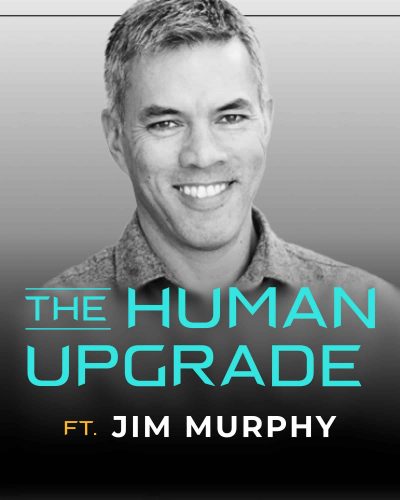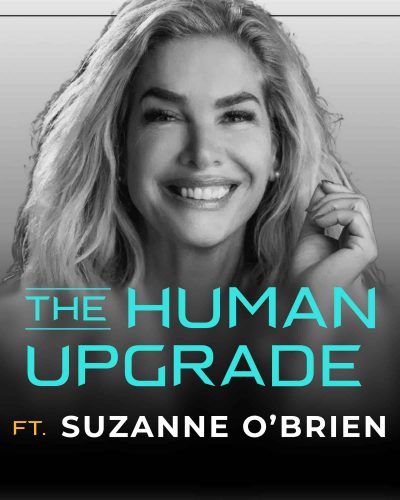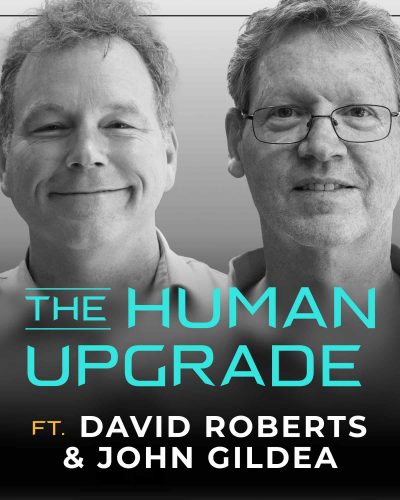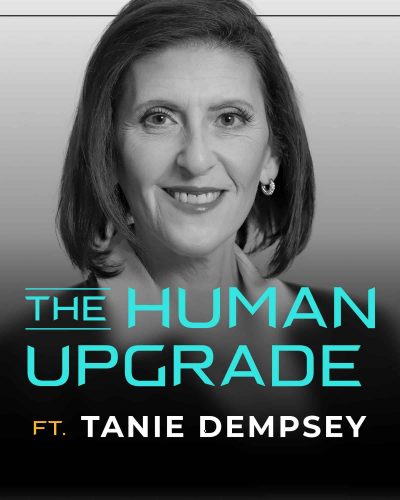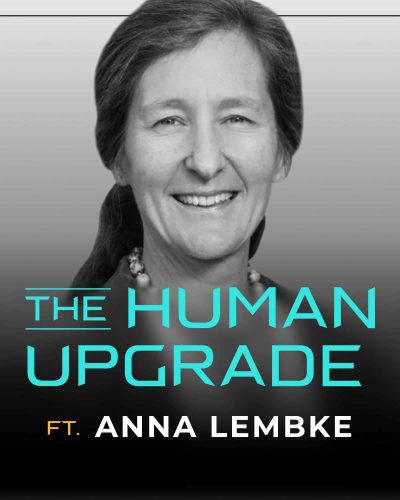In this Episode of The Human Upgrade™...
…you’re going to discover how old you really are by taking a dive into the science of epigenetic methylation and biological aging. You’re going to find out about gene function, gene expression and what it has to do with how you age—and why it matters.
Biochemist Ryan Smith co-founded TruDiagnostic, a company focused on methylation array-based diagnostics for life extension and preventive healthcare. TruDiagnostic, a CLIA certified lab and health data company, developed the TRUAGE anti-aging test.
From a small blood test, TruDiagnostic can tell you your biological age—how old your body acts, based on how it’s functioning (as opposed to your chronological age, which is the number of years you’ve been on Earth).
Biological age is one of the most impactful pieces of data you can have about yourself. Age is the number one predictor of death, and your biological age matters more than the number of times you’ve been around the sun.
For example, you could be 42, and if you take great care of yourself, your biological age may be 30… Or, if you take poor care of yourself, your biological age may be 60.
Either way, TruDiagnostic will tell you how old you really are. And their test goes further than that. After you discover your biological age, TruDiagnostic also gives you a list of strategies to reverse aging based on your unique genetics. In other words, you get personalized anti-aging biohacks—and you can test your age over time to see if you’re getting younger, so you know whether or not your anti-aging hacks are working.
If you can turn back the clock on your biological age, you unlock the door to a longer, better life.
“If everyone in the world were seven years younger biologically than chronologically,
we would cut disease in half overnight.
Fifty percent of people would no longer be sick.”
Ryan Smith
It feels like the cusp of a big change in longevity research with science and data now more fully supporting this work. TruDiagnostic currently has over 30 approved clinical research studies underway investigating how epigenetic methylation changes impact how long you live and how well you age.
“New algorithms are coming out on a daily basis, which is both a good and a bad thing because the bar is always being set incrementally higher,” Ryan explains. “And so that is a good thing because it means we’re getting even better at diagnosing the real signal of age and getting rid of any association to disease and just actually getting the age values right. And there are a lot of different methods to do that but all of them involve computer learning. And that is exactly why we’re seeing such a big, I would say, change in this aging research field is because now these computer learning platforms, which previously were unavailable, are being matched with diagnostic methods which are creating data sets, which were previously unavailable. And so we’re sort of opening up and opening up these rooms of analysis.”
In this episode, you’ll also learn:
- Why men age worse than women, and what you can do about it
- The best ways to predict your biological age (hint: grip strength is one of them)
- How getting COVID changes the speed at which you age
- Why small amounts of stress are amazing for anti-aging (and the right ways to stress your body and brain so you age in reverse)
SPECIAL OFFER FOR THE HUMAN UPGRADE LISTENERS: You can order TRUAGE at https://trudiagnostic.com/dave-asprey and enter code ASPREY at checkout for $50 off.
Enjoy the show!
LISTEN: “Follow” or “subscribe” to The Human Upgrade™ with Dave Asprey on your favorite podcast platform.
REVIEW: Go to Apple Podcasts at daveasprey.com/apple and leave a (hopefully) 5-star rating and a creative review.
FEEDBACK: Got a comment, idea or question for the podcast? Submit via this form!
SOCIAL: Follow @thehumanupgradepodcast on Instagram and Facebook.
JOIN: Learn directly from Dave Asprey alongside others in a membership group: ourupgradecollective.com.
- Our Partners
- Links & Resources
- Key Notes
Eat Good Keto Bread:
https://www.uprisingfood.com/DAVE, use code DAVE to get $10 off the starter bundle. That includes two superfood cubes and a four pack of freedom chips!
Website: trudiagnostic.com
Facebook: facebook.com/TruDiagnostic
Instagram: instagram.com/trudiagnosticofficial/
Twitter: twitter.com/TruDiagnostic
YouTube: youtube.com/channel/UC408EGTLhAf8haqe1H5Ep_Q
LinkedIn: linkedin.com/in/ryan-smith-lexington-ky/
- We know more about how to measure age and what to do about it and it comes from something called epigenetic methylation. What the heck is that? – 3:17
- One of the things we’re just seeing in general is that men first off age worse than women. – 8:32
- Tell me what I’m missing about telomeres and tell me how that’s different than what TruDiagnostic is doing with methylation. – 11:35
- What we’re trying to do here at TruDiagnostic is to build the biggest and largest database of methylation data. – 15:01
- We know that by reducing your age, you can reduce all of those different outcomes. – 18:15
- If you look at the first ever algorithm published and the one that has by far, the most publications was the 2013 sort of pan-tissue clock by Dr. Horvath. – 26:44
- We can use these neural nets to develop predictors of how someone for instance, might respond to metformin or for instance, how their bone health might be affected with aging or et cetera. – 33:43
- Every cell on your body has the exact same DNA but your expression of your epigenetics is different in every type of cell. It’s what gives your cell the identity that they have. It’s why your skin cells behave like skin cells and your heart cells behave like heart cells. – 37:03
- We’ve published in combination with an immunology group from Cornell and then a group from Yale who I already mentioned has published some really accurate algorithms called the principal component version of these algorithms. – 41:31
- We can actually tell you for instance, how much mercury or lead you actually have been exposed to by looking at individual locations on your genome and seeing how they’re methylated. – 48:19
- You used to think, oh, I’ve had X number of birthdays. That’s how old I am. And we have examples of people being 15 years older or 19 years younger. – 53:31
- I think sometimes people have a sort of this false dichotomy between living a long life and living a life worth living. And I think that false dichotomy because you can absolutely do both. – 57:25
